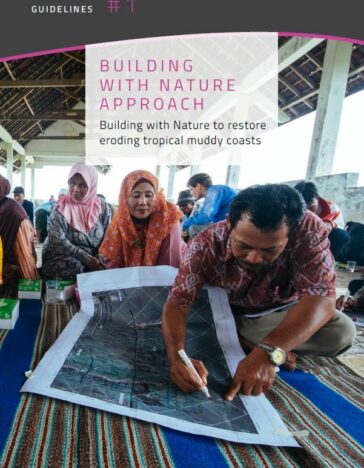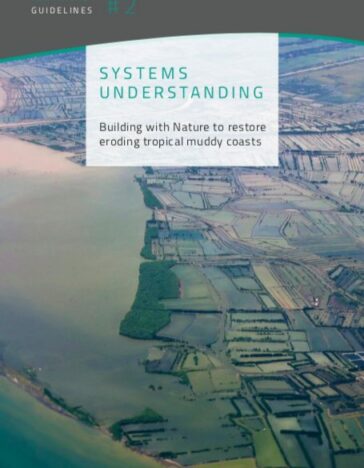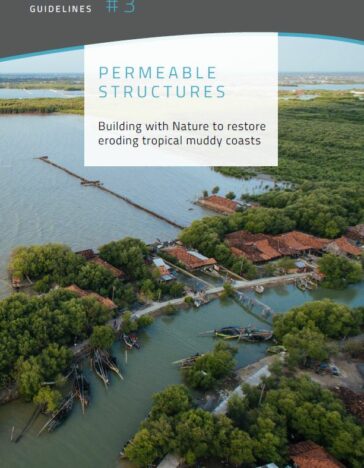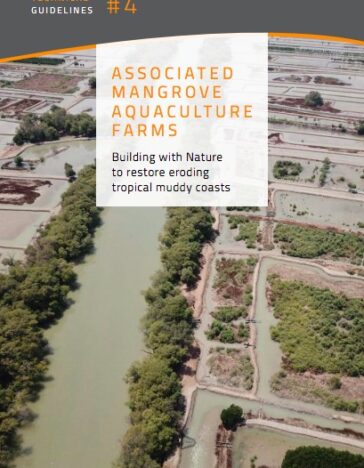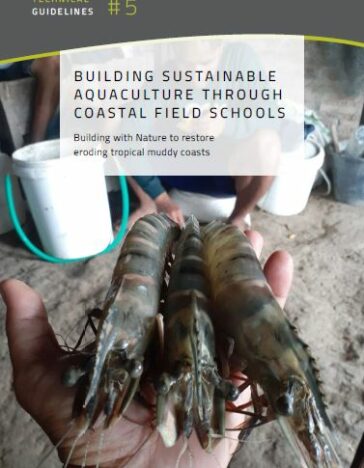
Technical guidelines released for restoring eroding tropical coastlines
-
Aquaculture, fisheries and coastal agriculture
-
Coastal resilience
-
Coastal wetland conservation
-
Integrated delta management
Wetlands International and its global and Indonesian partners present a series of Technical Guidelines on Building with Nature to restore eroding tropical muddy coasts. The guidelines share knowledge and lessons in a practical way to support the sound replication of technical and socio-economic interventions that, in combination, were applied to recover 20 kilometers of eroded coastline in Central Java, Indonesia. This project used Nature-based Solutions by applying the Building with Nature approach as an alternative to traditional coastal engineering solutions.
The interventions in the district of Demak addressed the removal of mangrove belts for aquaculture development – one of the main causes of the coastal erosion problems – by integrating mangrove and river restoration, small-scale engineering, and sustainable land use. To halt coastal erosion, temporary semi-permeable barriers were built to dampen the waves and capture sediment, creating sheltered areas near the coast for accretion and natural mangrove recovery. Where the coastline was not yet eroded, the conversion of fish ponds into mangrove forests was encouraged in close collaboration with local communities. In addition, we introduced a model in which mangrove and brackish water aquaculture can be complementary land-use systems that boosts the local economy and enables communities to increase their hazard resilience.
The joint objective of the consortium is to replicate and scale up the Building with Nature approach to other rural and urban areas in Indonesia and worldwide. The replication potential of the solutions applied in Demak is high. The problems in Demak—including demographic and economic developments, subsidence, and climate change—are typical of those found along the coast elsewhere in Java and around the world. For example, without interventions, an estimated 30 million people on Java alone will suffer from frequent flooding by 2030. In a risk assessment for North Java conducted by the consortium, we concluded that using Building with Nature measures including protecting mangroves, along with limiting ground water extraction, and bringing rivers back into the floodplain seem the most cost-effective strategies for the North Coast of Java. Mangrove areas are being lost globally at an average rate of 0.2-0.6 percent per year.
Moreover, there is a Building with Nature solution for every setting, combining green and grey in an optimal mix alongside other measures for risk reduction, see the Building with Nature platform (EcoShape) for all landscapes and Building with Nature concepts piloted thus far.

